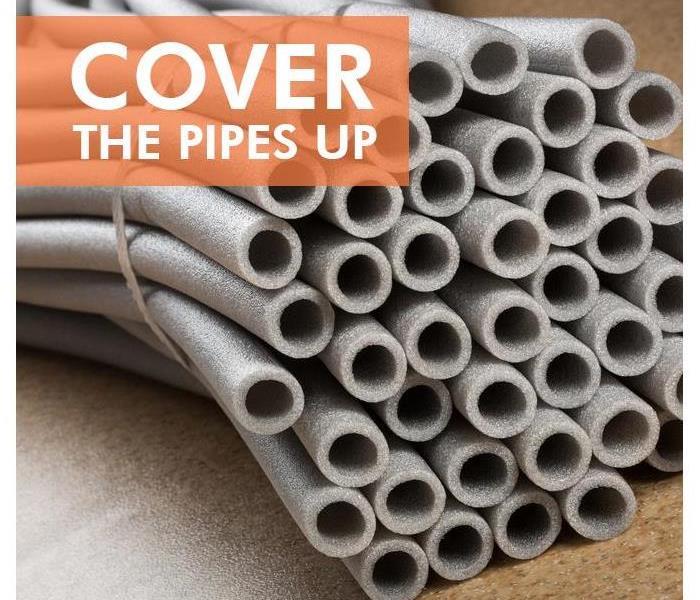5 Ways to Prevent Freezing Pipes
3/13/2020 (Permalink)
Five Tips To Reduce The Potential For A Pipe To Burst
Flooding is often associated with rain and snow melting. If a business owner in Rio Verde, AZ, enters their property and sees high waters but the sun is shining and the weather has been dry, the culprit is likely a burst pipe. While water pressure, corrosion and moving pipes can be the cause of unexplained standing water or leaking, a frozen pipe is often the cause. Once it bursts, it can lead to extensive water damage and mold growth Below are five tips to reduce the potential for a pipe to burst when the temperatures dip.
1. Run Water
Keeping a faucet running ensures that there is constant movement and keeps the pressure in pipes low, thus reducing the change for the system to freeze.
2. Increase Warm Air Flow
Since pipes are typically near an exterior wall or window, air leaking in can counter the heating system. Inspect the area for any drafts and seal any leaks to ensure the temperature doesn’t dip below 32 degrees near water lines. Additional places to check for draft includes near vents and electrical wiring.
3. Let Faucets Breathe
If the location of the bathroom or kitchen of a property is on an exterior wall, the faucet’s plumbing could also be affected. Leaving a cabinet door open can help keep warm air flowing.
4. Check Outdoor Faucets
Depending on the property and landscaping needs, keeping a hose attached can make water plants or grass easy. When the weather cools, sprinkler systems should be shut off and hoses should be removed from the faucet.
5. Enhance Insulation
Especially in older buildings, the main pipes can be old and located in cold areas. Insulating the pipes is an ideal way to avoid a burst pipe. Heat tape is also available the helps the pipes stay warm, as well as thermostatically controlled heat cables.
In some cases, when age and corrosion are factors, a burst pipe may be inevitable. When cold weather hits, take a few precautions can help provide peace of mind that water damage won’t be an issue.






 24/7 Emergency Service
24/7 Emergency Service
